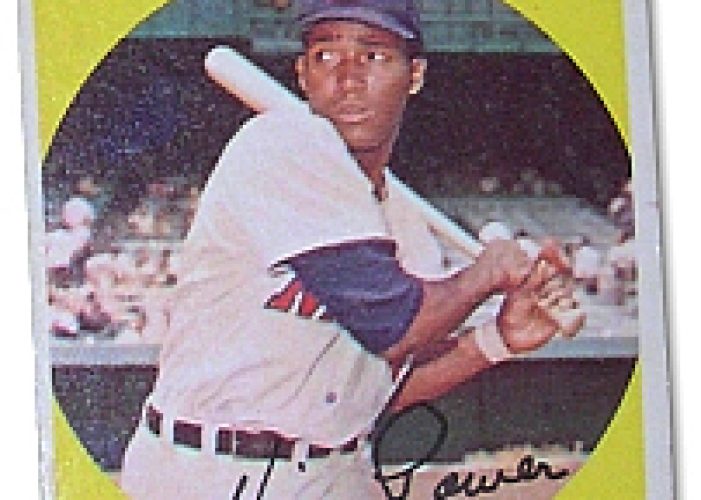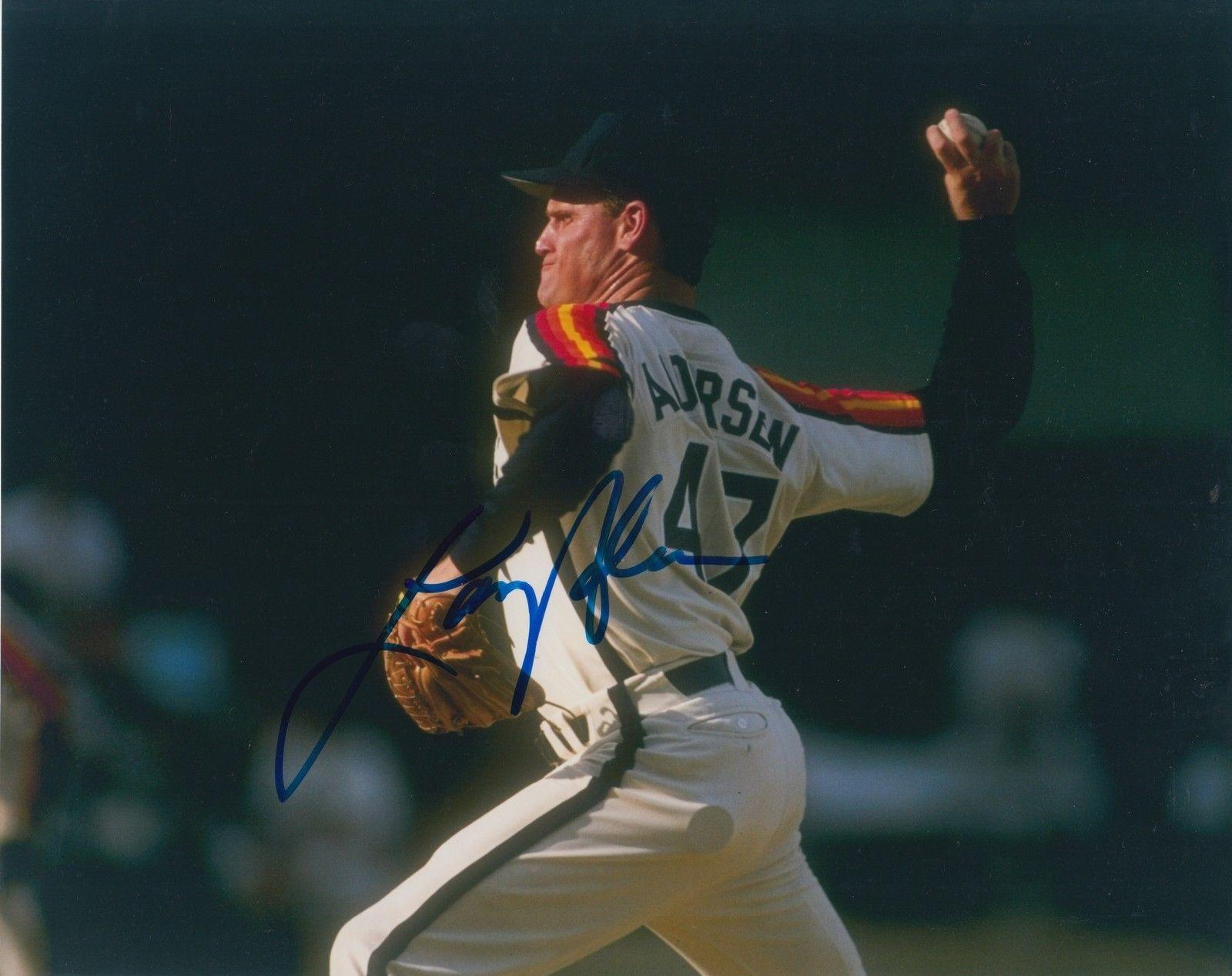“If it wasn’t for bad luck, I wouldn’t have no luck at all.” — Albert King, Born Under a Bad Sign.
Sometimes, timing is everything. Why does the anvil always fall on Wyle E. Coyote and not the Road Runner? Being in the right place, at the right time, with the right group of people is often the difference between fame, fortune, and notoriety, and cult player status, a sometimes-marginal livelihood, and a position as a footnote in history. After all, it is often said that history is written by the winners.
Vic Power somehow managed to miss the call for immortality on all counts. It was Power’s “misfortune” to be a flashy, highly stylized, individualistic, dark-skinned Latino in the 1950s: during an era in which the style of baseball played has been described (by Bill James) as “perhaps the most one-dimensional, uniform, predictable version….ever offered to the public.” Power was traded by the New York Yankees in December 1953, despite leading the American Association in batting that season (.349), thus missing an opportunity to taste the fruits of the Yankees dynasty, as well as gaining the distinction of becoming the first black Yankee; an historic accomplishment that would not be achieved until 1955, by Elson Howard.
Power, who was considered “a good hitter, but a poor fielder” by Yankees scouts, won seven consecutive Gold Glove awards at first base. During his 12-year big league career (1954-1965), Power toiled for mediocre American League clubs in Philadelphia, Kansas City, Cleveland, Minnesota, and Los Angeles; teams that never finished higher than second place, five games out of the money Power himself was named to four All-Star teams. A trade to the Phillies in September 1964 seemed to assure the lifetime .284 hitter his opportunity to perform in the World Series spotlight, but Power injured his finger after only 18 games with Philadelphia, and then the club committed their legendary collapse, finishing second.
Whether it was his one-handed fielding, pendulum-style batting stance, sense of humor, or his heavily-accented English, Power always seemed to be vilified, criticized, and misunderstood. At various times in his major league career, he was accused of being “slothful, self-indulgent, a poor team man, a clubhouse lawyer, a playboy, a showboat, a hot dog, a hothead, and a losing ballplayer.” Even Power’s name caused resentment and alienation, particularly in his home land of Puerto Rico.
In a letter to historian Bill Haber in 1993, Power gave his real, full name as Victor Felipe Pellot Pove; Pove being his mother’s maiden name and Pellot his father’s surname (as is traditional in Hispanic culture; see Roberto Clemente Walker). However, when Maximina Pove was in the first grade, her teacher mistakenly corrected the young lady’s last name, changing the “v” to a “w” and adding an “r” at the end.
During Power’s first two professional seasons, in the French-Canadian town of Drummondville, Quebec, Power went by the name Victor Pellot. When his name was announced at the ball park, there was much laughter among the crowd: apparently the word “pellot” has a less than wholesome meaning in French. After that incident, he used the action-figure name Vic Power when playing in the United States, and Pellot, when playing winter ball in Puerto Rico. Unfortunately, many of the locals either didn’t realize that “Pellot” and “Power” were the same player, and many who did thought Vic had “sold out” to the culture and lifestyle of the USA. The fact that Power drove a big orchard-colored Cadillac didn’t help, either.
Despite winning seven consecutive Gold Glove awards, Power was criticized for his unique one-handed fielding style. Opposing players claimed Vic was “showboating,” especially when he leaped in the air to retrieve a shoulder-high throw from an infielder. “I can see the ball better in the middle than high up, so I jump,” Power claimed in defense of this odd characteristic. Once when Jimmy Piersall was robbed of a hit by Power’s glove, Piersall insulted and taunted Power from the safety of the dugout. Vic offered to fight, and the eccentric Piersall reportedly retorted, “You don’t want to kill me. I’ve got a big family to support.” This made Power laugh. He backed off and the two became friends (and at one point teammates).
Fans were of two minds concerning Power’s distinctive fielding style. During the last two outs of Jack Kralick’s August 26, 1962, no hitter, they yelled to the first baseman, “Two hands, two hands” on balls hit to the right side of the infield. Yet one year later, at the first, and only Latin-American All-Star Game, played at the Polo Grounds on October 12, 1963, (the last professional baseball game ever played at that historic field), the New York Times noted, “Power was a favorite with the fans because of his one-handed catches of pop fouls.”
Power’s style at the plate was equally unconventional. In an era of big, lumbering, first basemen who swung from the heels, Vic preferred a smooth, level, swing, constantly moving his bat in a “pendulum-motion” to “clean the plate so the umpire could see it,” he would joke. A notorious first-pitch hitter, Power would say, “I have no strike zone.” He seldom walked, but he also seldom struck out (279 walks and 247 strikeouts in over 6,000 career at bats). Vic was a true contact hitter, and an excellent hit-and-run man in an era where the home run was king.
When needed, or when angered, however, Power was capable of hitting the long ball. He muscled-up for 126 home runs lifetime. Five times he hit two in a single game. His most satisfying shot was probably on September 7, 1958, off White Sox hurler Dick Donovan. Earlier in the game, Donovan hit Power with a pitch (Power was possibly the most thrown-at hitter of his era). As Vic lie on the ground in pain, he heard taunts of “showboat” directed his way. A brawl nearly ensued, but cooler heads prevailed, and in his next at bat against the right hander, Power got his revenge by blasting the first pitch over the wall.
Baseball signed by Vic Power and other members of the 1955 Kansas City A’s
Baseball signed by Vic Power and other members of the 1955 Kansas City Athletics.
On August 14, 1958, two months after being traded to the Cleveland Indians from the Kansas City Athletics in exchange for a young Roger Maris, Power put his name in the record books by becoming the first American League player to steal home twice in the same game. Ironically, those two bases would be the only ones stolen by Power for the Tribe in ’58.
The first theft came in the eighth inning, after Vic had given Cleveland an 8-7 lead with an RBI single. Power, standing on third, noticed the slow, full windup of Detroit twirler Jack Fischer and proceeded down the line. He made it home easily, yelling “Voy, voy, voy, (Go, go, go)” at batter Orestes “Minnie” Minoso once he was more than halfway home, motioning Minoso to get out of his way. The second steal came in the tenth inning of a tie game. This time, the pitcher was Frank Lary, and the batter was slugger Rocky Colavito, who had already hit two home runs in the game. Power, who thought the odds were against Rocky getting yet another clutch hit that day, took a longer lead off third with each pitch. Finally, with a 2-1 count, he came all the way home and easily beat the tag of receiver Charley Lau. “The pitch was low and away. They never had a chance to get me,” explained Power after the game.
Through it all, though, Power always tried to maintain his sense of humor. While passing through segregated Little Rock, Arkansas, during the 1950s, he was informed by a restaurant waitress that, “we don’t serve Negroes.” “That’s OK. I don’t eat them,” Power replied. When complimented by a fan for his on-field “color,” Vic responded, “Thank you. My parents had a lot of color, too.” Explaining his prematurely-bald head as well as his propensity for being hit with pitched balls, Power quipped, “That is from getting hit in the head so much. It has stopped the circulation.”
Vic Power retired from baseball in 1965. A potential career in acting was aborted by his heavy Spanish accent. In 1967, Power returned to Puerto Rico to aid his ailing mother. He has remained on the island ever since, doing some scouting for the Angels but mostly conducting baseball clinics for teenagers, trying to keep them out of potential trouble. In 1990, he told author Danny Peary, “…I’m very proud of my accomplishments. I had marvelous careers in Puerto Rico and the major leagues….People remember me…you remember me.”
@ET-DC@eyJkeW5hbWljIjp0cnVlLCJjb250ZW50IjoicG9zdF90YWdzIiwic2V0dGluZ3MiOnsiYmVmb3JlIjoiTGVhcm4gTW9yZSBhYm91dCB0aGUgdGVhbXMsIHBsYXllcnMsIGJhbGwgcGFya3MgYW5kIGV2ZW50cyB0aGF0IGhhcHBlbmVkIG9uIHRoaXMgZGF0ZSBpbiBoaXN0b3J5IC0gLSAtIC0gLSAtIC0gIiwiYWZ0ZXIiOiIiLCJsaW5rX3RvX3Rlcm1fcGFnZSI6Im9uIiwic2VwYXJhdG9yIjoiIHwgIiwiY2F0ZWdvcnlfdHlwZSI6InBvc3RfdGFnIn19@
Other Resources & Links
[et_pb_signup provider=”getresponse” getresponse_list=”Thomas Hannon|zs45L” success_action=”redirect” success_redirect_url=”https://thisdayinbaseball.com/join-the-community/” success_redirect_query=”on|off|off|off|off” title=”Baseball history from Doubleday to Present Day” button_text=”Join us!” description=”
This Day In Baseball gives you cool facts and stories through baseball’s rich history.
” _builder_version=”4.17.4″ _module_preset=”default” background_color=”#E02B20″ link_option_url=”https://thisdayinbaseball.com/join-the-community/” link_option_url_new_window=”on” border_radii_fields=”on|32px|32px|32px|32px” global_module=”159917″ saved_tabs=”all” global_colors_info=”{}” theme_builder_area=”post_content” /]




